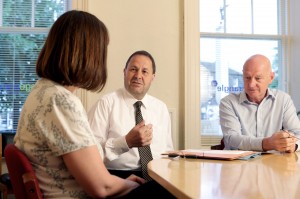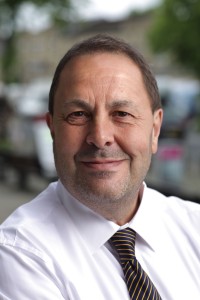It is a common misconception that ‘mediation’ means the same as counselling and that its objective must be about reconciliation in the context of divorce and family law. At least that is the view of seasoned mediator Jon Leach. It is a mistaken impression which he believes inhibits many couples from accessing a route to more lasting conflict resolution when they have decided to part.“Mediation is not about counselling and it’s not about reconciliation,” he stresses, “those options are for couples who want to make their relationship work and there are many sources of help available to them, such as Relate and private counselling. Mediation, on the other hand is for people who agree – on this if nothing else – that their relationship has come to an end, but who cannot find an amicable way to part.”
The aim is for a Mediator to be the first point of contact for couples who decide to separate. Their role is to ensure that clients are fully informed about ways to resolve their issues rather than resorting to court. Mediation will be encouraged whenever possible with Legal Aid provision for mediation being increased where elsewhere it is to be withdrawn for most family cases in court.
As a result, Jon in his capacity as a Legal Aid approved mediator, has worked with many couples in Yorkshire to help prevent their divorce or separation from degenerating into a costly court battle; thus saving the government and the tax payer thousands of pounds and the individuals concerned a great deal of anguish and expense.
At present, the professionally trained and accredited mediator is a rare breed, however. While this is certainly changing as many begin the long road through training and practical work to accreditation, there is a currently a significant gap between the number of divorce and family law practitioners and the number of mediators.
Although many firms of solicitors appear to be somewhat slow on the uptake regarding the importance of mediation, others with well-developed family law departments are now referring cases for mediation, so that Jon, who works within the practice of Savage Crangle Family Mediation (attached to the solicitors of the same name), is now regularly taking referrals from other firms. He is the only fully accredited mediator acting in the whole of his area, covering Skipton, Ilkley, Otley and Upper Wharfedale.
Whilst Legal Aid is referring cases, along with forward-thinking legal practices, it seems that many individual clients who are divorcing or separating are not yet seeking mediation as an option for themselves in the first instance. The most likely reason being that which Jon has identified – the fundamental lack of understanding of what mediation means – and it is this that he and other like-minded mediators seeks to clarify. Raising awareness of what mediation actually means and how you can go about getting it is almost certainly going to revolutionise separation and divorce for the better.
Most difficult of all, is trying to agree on anything with ‘the ex’. Arguing over the simplest of issues as well as the really important ones may feel like an insurmountable problem. This is where mediation comes into its own. It provides a safe, neutral environment for discussion to begin.
Over the course of around three sessions, both parties express their concerns openly to each other with Jon present as an objective third person facilitating their communication. The key issues that are in dispute are identified and calm exploration of the options is encouraged. He helps guide both parties to reach an understanding on matters including details of divorce, finances and, most importantly, the practical arrangements for children.
In financial terms the savings for both parties can be very important as successful mediation is considerably less expensive than going to court over a divorce settlement or custody of children, and certainly much less stressful as it is not adversarial by its nature like a courtroom.
Professional mediation is effective where self-help options tend to be doomed to failure. Although talking to friends and relatives may feel helpful, often they may have their own opinions which can get in the way of actually helping separating couples to make progress. By contrast, Jon is a stranger and will listen to both sides independently without any bias and help to steer both to finding all-round solutions that will work out for everyone’s benefit.
Successful mediation means both parties can begin their new lives apart knowing that they have resolved their issues constructively together, providing a stable base for the children’s future and any dealings they may need to have with each other going forward. The whole process is voluntary and confidential. Based on the premise that both parties need it to work, decisions made are mutually agreed and therefore carry a much more meaningful and long lasting chance of success than those imposed by courts.
Now 57 years old, Jon Leach feels he has pretty much ‘seen it all’ when it comes to relationships. His calm demeanour and warm personality instantly relax his clients. Qualified as a solicitor in 1980, he has worked in Family Law for more than thirty years. It means that he is not only a mediator, but understands the law fully and is able to inform clients on the legal and financial aspects of separation too – so they get the best of both worlds! He has the highest qualification in mediation from the Family Mediation Council and trained with the Family Mediators Association and with Resolution, the professional bodies which are dedicated to helping families to find long lasting solutions to the issues involved in separating. Outside of work, he has also been a District Councillor for Craven and stood as a Parliamentary candidate for Harrogate in the 1987 General Election.


